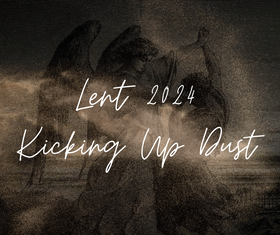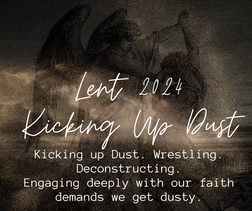 There is a new word I’m hearing a lot these days: deconstruction. As in, I am deconstructing my faith. I’m working with my therapist to deconstruct my past. My favorite, that you might only hear on campuses: I’ve been reading a lot about the impact of colonialism and trying to deconstruct the history I was taught. Try that line at a dinner party and see what happens! Deconstruction feels like a big word. But it’s not really a complicated word. It simply means to break something down. Think of it in terms of Legos. You probably built a Lego creation as a kid. Years passed and you no longer need that Lego-creation collecting dust on your shelf. So you deconstruct the Lego creation, piece by piece, and even get dusty in the process. After deconstruction, you can either reconstruct a new Lego creation (with the doors locked so no one knows you still play with Legos). Or, you can pass on those interesting Lego blocks to someone else while getting rid of all the broken and damaged ones. Deconstructing our past, cultural norms, and even our faith is really the same as deconstructing an old Lego creation. It’s just an internal project. Sadly, in most Christian traditions, deconstruction and reconstruction is not only discouraged, it is prohibited. Many Christian communities hand over a stale, dusty, pre-made Lego creation (dogma, traditions, and a prescribed faith) and demand that not one block be changed. Sounds pretty miserable. These churches should have a sign out front that reads: CREATIVE ENGAGEMENT NOT WELCOMED. I never liked to follow the prescribed Lego directions. And although my eldest loved getting Legos sets for his birthday, he equally enjoyed making new Lego creations out of old sets.  When it comes to faith, I’m a lot like my son with his Legos. I am grateful for the traditions that have been passed down to me as a member of a local church and the larger worldwide Christian faith. I also enjoy creating new religious practices in my own personal life that nod to the past while also re-imagining the present. I am simultaneously grateful for the centuries of Biblical scholarship that I depend on as I study the text in preparation for each Sunday’s sermons, even as I flatly reject much of that patriarchal scholarship. I love the rhythm of the Christian calendar, embracing Advent and Lent and Pentecost, while also adding things to the liturgical calendar such as Pride Sunday. Deconstruction & Reconstruction. Taking apart and building up. This is a fundamental practice in our spiritual lives individually and collectively. It’s not scary! It’s life giving. It’s also biblical. In Genesis, Jacob, the son of Isaac, and the grandson of Abraham, wrestles with God (or an angel or a stranger--we are not sure). The Hebrew word we translate as wrestle, literally means to kick up dust. After Jacob’s encounter, his wrestling partner renames him Israel--the one who wrestles with God. This name, this shared identity of the Hebrew people, is one of great honor. The Israelites are those who wrestle with God. Later, another Isrealite named Jesus wrestled with his faith. For 4o days and nights Jesus retreated to the wilderness. There he wrestled with his own demons, his faith, and his doubts before he began his public ministry. Lent begins with this story as we begin our own 40 days of wrestling. Kicking up Dust. Wrestling. Deconstructing. Taking apart. Whatever word we use, this is what it means to be engaged deeply with our faith. Faith engagement kicks up questions, misgivings, doubts, and even sometimes traumas. The answer to these encounters is to stand our ground and wrestle with God. We cannot run away. We must deconstruct, so we can REconstruct. In the process, we will discover God. Not the God others might want us to embrace, but the God who offers healing, not the God who demands certain behavior, but the God who loves us, not the God who judges, but the God who runs to us with open arms. This Lent, at the churches I serve, we will look at passages in which Jesus, the wrestler-disrupter, has dust-ups with religious authorities, economic powers, cultural norms, institutional powers, and ultimately with life itself. Jesus got dusty for the well-being of the world and invites us to do the same. As we examine these dusty Jesus encounters, we will get dust all over our spirits. At times it might be exhausting. We must travel to the hard places and get dusty if we are to discover life-giving faith. To be God’s people is to wrestle and enter the wilderness. We will emerge emboldened and ready to reconstruct an authentic spiritual life that brings wholeness not only for ourselves, but for others. Deconstruction and Reconstruction is THE process of faith. This Lent go head and get dusty with Jesus as he wrestled and healed, struggled and envisioned, and ultimately offered us a new way of being, the kin-dom.
0 Comments
Leave a Reply. |
Categories |
 RSS Feed
RSS Feed